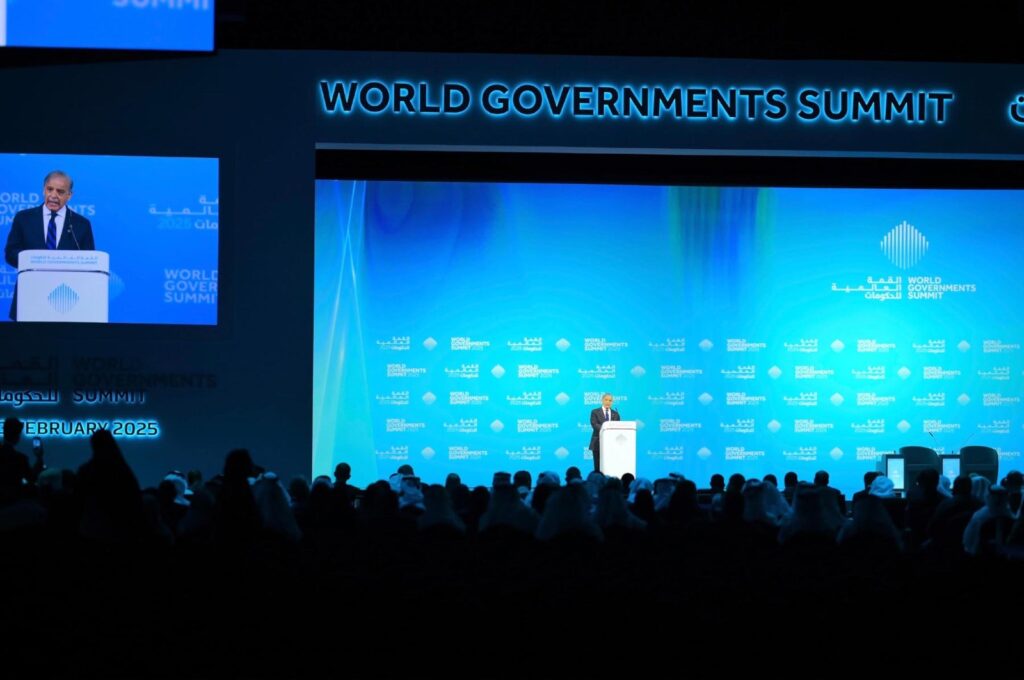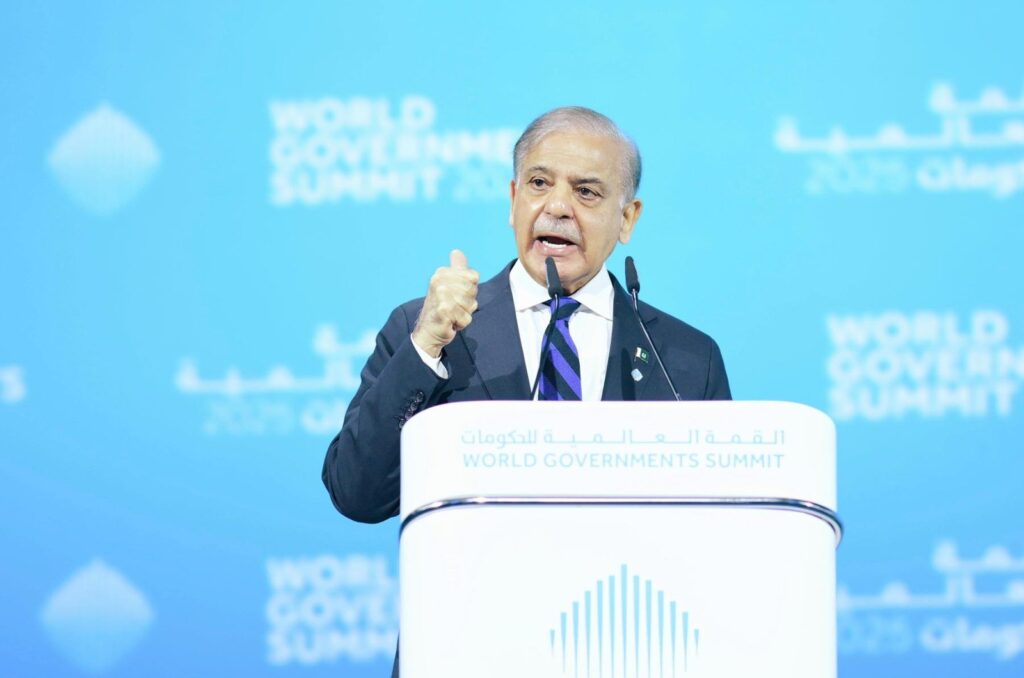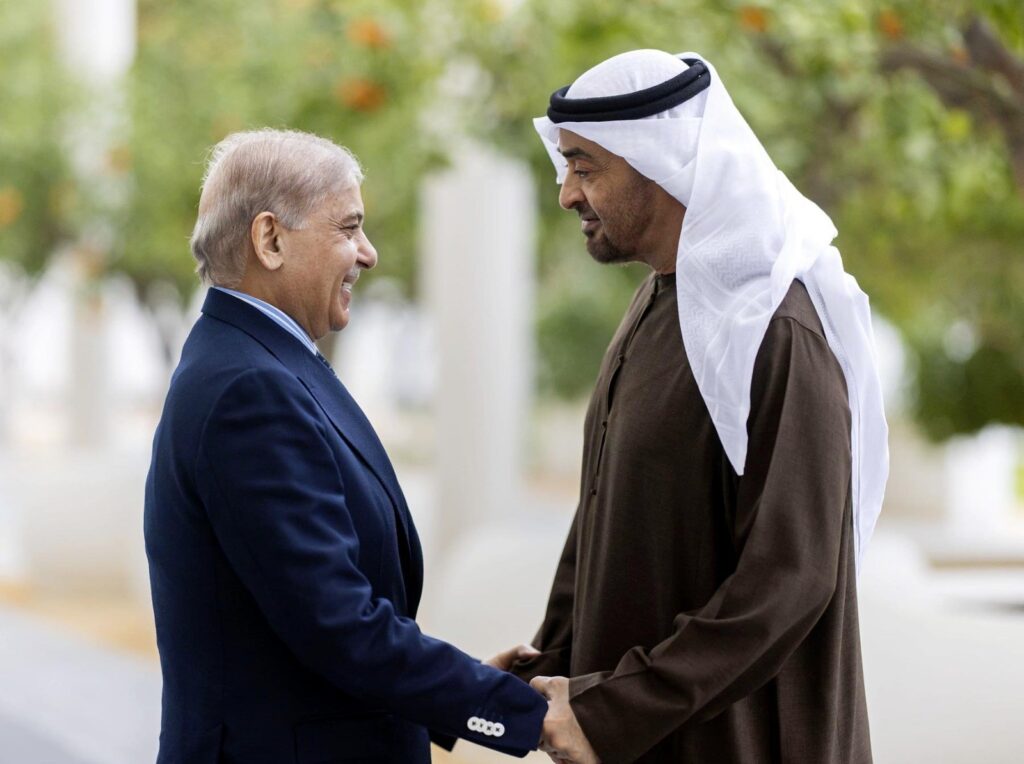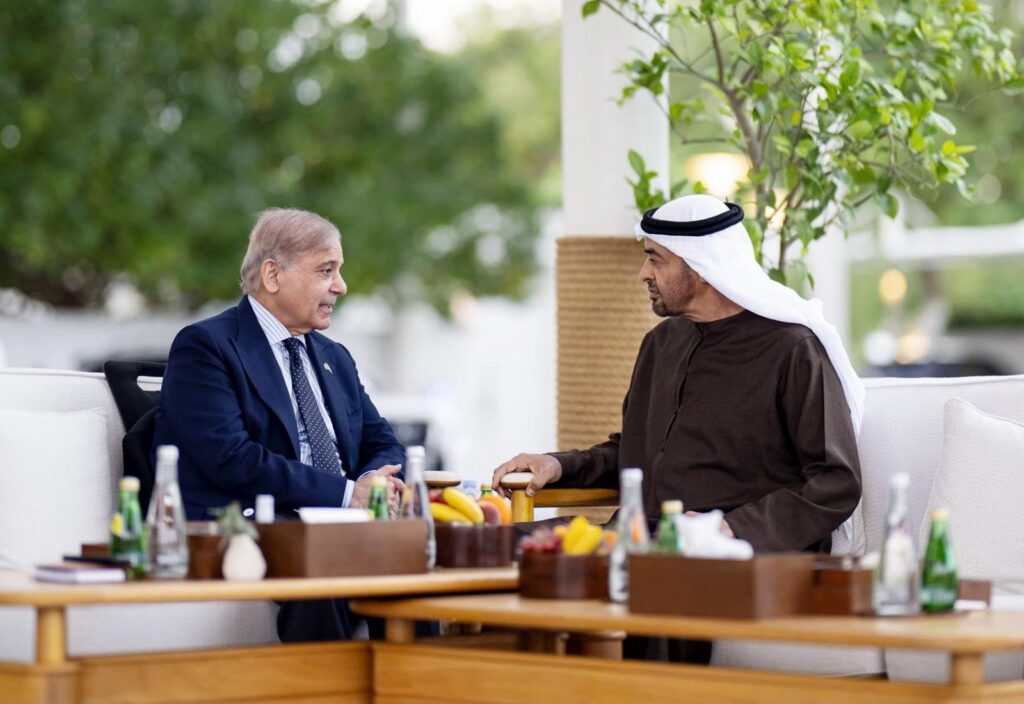PM urged governments to strengthen climate
financing and technology sharing while inviting
investors to explore Pakistan’s green energy
Associated Press of Pakistan

Dubai: Prime Minister Muhammad Shehbaz Sharif on Tuesday urged governments to strengthen climate financing and technology sharing while inviting private investors to explore Pakistan’s green energy and infrastructure opportunities.
Addressing the World Governments Summit in Dubai, he emphasized the need for multilateral institutions to support emerging economies like Pakistan in achieving sustainable economic growth. He said that while Pakistan was committed to mobilizing domestic resources and policy reforms, international partnerships and financial support remained critical. “Pakistan’s energy transition alone demands a $100 billion investment,” he noted.

Economic Transformation & Green Energy Goals
PM Shehbaz highlighted Pakistan’s economic transformation, stating that inflation had dropped to 2.4% in January, the lowest in nine years, while interest rates had been capped at 12%. He said economic stability was central to the national transformation plan, ‘Uran Pakistan,’ which focuses on exports, E-Pakistan, climate change, energy and infrastructure, equity, and empowerment.
He reiterated Pakistan’s commitment to generating 60% of its energy from clean sources by 2030 and converting 30% of all vehicles to electric mobility. “Pakistan’s southern region holds 50,000 MW of untapped wind energy potential, while the northern hydro projects will add 30,000 MW of clean energy capacity,” he informed. Solar adoption is being accelerated through policy reforms, tax exemptions, and incentives for investments, including net metering and waived custom duties on solar panels.

Investment Potential & Special Economic Reforms
PM Shehbaz described Pakistan as one of Asia’s most dynamic investment destinations, with 70% of its population under the age of 30. He highlighted ongoing efforts to simplify business regulations, enhance legal protections, and streamline approval mechanisms to attract global capital.
He said the Special Investment Facilitation Council (SIFC) had been established to drive investment in key sectors, including renewable energy, resilient infrastructure, technology, minerals, industrial development, agriculture, and food security. “Pakistan is embracing eco-friendly agricultural innovation under the Adaptation Policy of 2023 to enhance productivity, ensure food security, and strengthen the rural economy,” he added.
He also announced that 1,000 young Pakistani agriculture graduates were being sent to China for training in modern agricultural techniques.

Support for Palestine & UAE Ties
The prime minister condemned the humanitarian crisis in Gaza, noting that over 50,000 innocent Palestinians had lost their lives. He reiterated Pakistan’s support for a two-state solution based on pre-1967 borders with Al-Quds as the capital of an independent Palestine.
During his visit, PM Shehbaz also met with UAE President and Ruler of Abu Dhabi Sheikh Mohamed bin Zayed Al Nahyan at Qasr Al Shati. They discussed bilateral trade, economic cooperation, and recent developments in the Middle East. Chief of Army Staff General Syed Asim Munir was also present in the meeting.
Both leaders explored ways to deepen Pakistan-UAE ties, particularly in economic, trade, and development sectors. They also underscored the significance of the World Governments Summit in shaping global governance strategies and enhancing preparedness for global transformations.
The meeting also emphasized the need for intensified international efforts to achieve a lasting peace in Palestine through the two-state solution, ensuring regional stability and security.






















